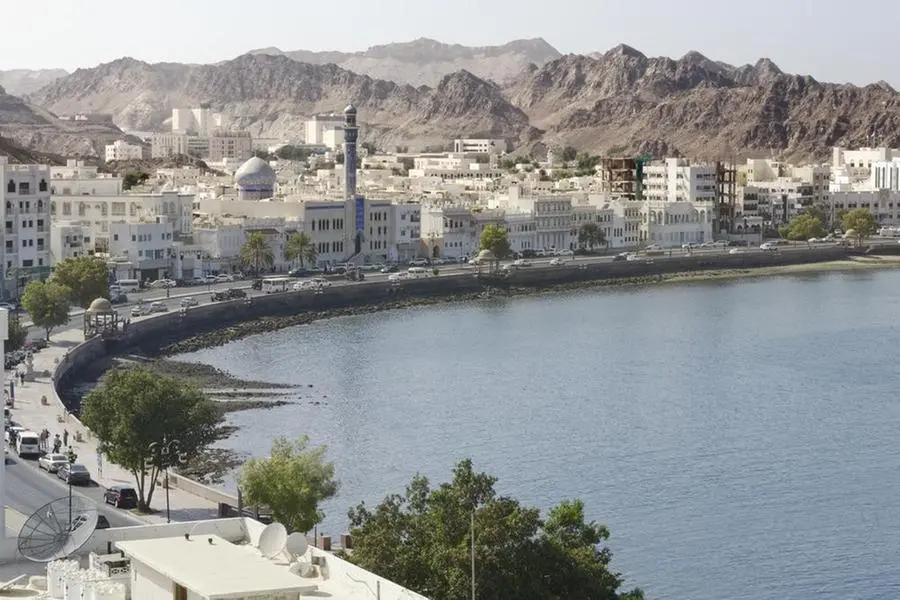PHOTO
With Oman’s ICV scheme evolving from a focus on oil and gas to a more encompassing initiative aimed at increasing domestically driven economic activity, strengthening local infrastructure, investing in innovation and nurturing sustainable practices, ICV now seeks to promote economical self-sufficiency by ensuring foreign investment activities contribute positively towards advanced economic benefits within Oman.
Oman under Vision 2040, which aims towards a smarter digital Oman, is undergoing an aggressive national AI strategy in automation technologies. AI transformation in Oman is deemed not just an advanced technology, but an urgent necessity amidst Oman’s undergoing industries revolution-broad shifts for evolving economy under digital Vision 2040. As Oman prepares to take advantage of a worldwide economy driven by technology, the combination of ICV and AI becomes essential. AI has the potential to aid substantially in value retention by providing advanced employment opportunities, supporting the establishment of local businesses and developing intellectual assets within the country. On the other hand, ICV supplies the necessary economic and administrative structure that allows for the value created from the utilisation of AI technologies to be retained within Oman for its citizens, institutions and future.
The incorporation of AI applications into ICV is pragmatic AI integration to ICV is strategic in Oman’s quest for economic diversification and sustainable development, as well as digital leadership in the region. This paper seeks to explain how two powerful systems of ICV and AI strategise to provide deeper alignment for their mutual reinforcement. It focuses on their synergies, applications in key sectors, policies and the challenges that stand in the way of realising their full potential.
ICV Measurement & Evaluation Scorecards
Alongside other regulators, the Ministry of Energy and Minerals utilises ICV scorecards to appraise companies’ performance. These scorecards evaluate: The percentage of local content for supply contracts; Employment of national labour; Training programmes; Capital Expense on Research and Development infrastructure; and Corporate social responsibility spending and initiatives.
These metrics guide company conduct, but more so, they determine the awarding of contracts in critical areas like government and strategic sectors. It tends to be that companies with high ICV scores have increased competitiveness during the tendering phase.
Oman Vision 2040 intends to develop an economy rooted in innovation and knowledge. In Oman, the ICV has a significant purpose in realising this vision by ensuring competitiveness from domestic labour and enterprises. While integrating emerging technologies such as AI, having it incorporated within the ICV frameworks enables the country to regulate its digital future.
AI in Economic Planning
It is generally agreed upon that AI is one of the most contending emerging technologies of the 21st century. The ability of AI to imitate human activities such as learning, reasoning and self-correction gives it a distinctive advantage and creates an opportunity for widespread adoption across almost all areas of the economy. There is a global “race” towards the development of AI, as countries understand the importance of new technologies for innovation, efficiency and growth of the economy.
This is also true for Oman, which is pursuing digital transformation in alignment with the Vision 2040. Oman’s national development plans requirements calls for the integration of AI and embarking on digital transformation processes. AI offers Oman a strategic leverage to skip traditional industrial development phases and enter into a knowledge-based, high-value economy.
Oman is in desperate need of modernised infrastructure and wide access to job training and public vocational solutions fuel the gap. Real-Time data e-governance driven by AI can enhance service delivery, improve decision making,and even eradicate some bureaucratic processes. Intelligent Transport, energy management, and environmental surveillance systems are just a few aspects of urban infrastructure development where AI plays a role.
Current AI initiatives
Oman is at the nascent stages of its efforts to integrate AI into its economic ecosystem, but the country has a few projects in the works. Sultan Qaboos University and GUtech University are furthering the formation of national capacities by launching programmes in AI and data science. The National Digital Economy Programme is an initiative aimed at the assimilation of AI and other digital resources into planning and service delivery in the public sector.
These initiatives serve as foundational steps towards embedding AI in national planning. However, the next frontier lies in linking AI directly to ICV metrics — ensuring that the AI ecosystem developed in Oman is not just imported but is created, owned and evolved within the country.
By embedding AI into national policy and ICV frameworks early, Oman can: Reduce dependency on foreign technical services; Foster a local AI industry; Position itself as a regional hub for smart technologies; and Export Omani-developed AI solutions to the GCC and beyond. This strategic alignment can catalyse value retention in Oman — not just economically, but also in terms of intellectual capital and national capability.
2022 © All right reserved for Oman Establishment for Press, Publication and Advertising (OEPPA) Provided by SyndiGate Media Inc. (Syndigate.info).





















